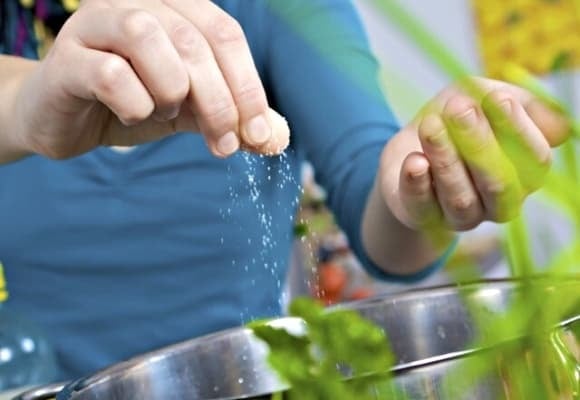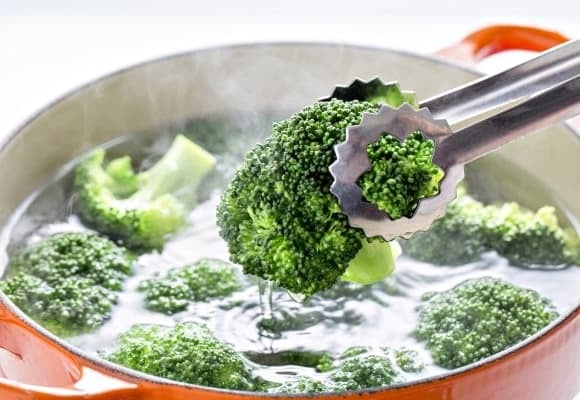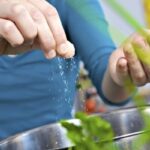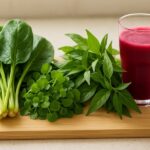Green vegetables are an essential part of our daily diet, packed with fiber that aids in weight management, digestion, cardiovascular health, and provides vital vitamins and minerals for the body.
According to the National Institute of Nutrition, steaming is the best method to retain nutrients, but boiling remains popular for its convenience and the ability to use the water as broth. However, improper boiling techniques can lead to nutrient loss and pose serious health risks.
The Habit of Adding Salt While Boiling Vegetables: More Harm Than Good
Many households still add salt to boiling water to make vegetables look greener and crisper. Nutrition experts warn that this practice poses significant health risks. Salt penetrates deep into the vegetables, making it difficult to remove.

Consuming the salted boiling water, especially when paired with dipping sauces or seasonings, increases salt intake. Over time, this can lead to excessive salt consumption, raising the risk of high blood pressure, cardiovascular diseases, and kidney dysfunction.
Additionally, the practice of soaking raw vegetables in diluted salt water to “disinfect” them is a misconception. Dr. Tu Ngu, Vice Chairman of the Vietnam Nutrition Association, states: “Soaking vegetables in salt water does not clean them better or eliminate parasites or chemicals. Instead, salt absorption softens the vegetables, reduces their nutrient content, and unnecessarily increases salt intake.”
5 Common Mistakes When Cooking Vegetables That Lead to Nutrient Loss and Health Risks
Beyond excessive salt use, the following seemingly harmless habits can silently harm health and deplete valuable nutrients from green vegetables:
-
Underboiling Vegetables to Keep Them Crispy: Many prefer lightly boiling water spinach or celery to maintain their green color and crispness. However, this may not kill parasites, especially liver flukes commonly found in aquatic vegetables, posing a serious risk of liver damage.
-
Overboiling, Leaving the Lid Off, or Adding Vegetables to Cold Water: Overcooked vegetables become mushy, with vitamins and minerals dissolving into the water or evaporating. Boiling with the lid off keeps vegetables green but reduces nutrient retention. Adding vegetables to cold water also causes significant nutrient loss during heating.

-
Wasting Vegetable Boiling Water: Dr. Tu Ngu notes that most water-soluble vitamins and minerals are in the boiling water. Discarding this water is wasteful. It’s best to use it as broth, using just enough water to cover the vegetables to retain nutrients.
-
Leaving Boiled Vegetables Uneaten for Too Long: Boiled vegetables should be consumed immediately after cooking. Dr. Tu Ngu advises: “Boiled vegetables should be prepared last, just before eating.” Leaving them for over 2 hours can lead to decomposition, nutrient loss, and bacterial growth.
-
Overreliance on Boiled Vegetables: While nutritious, boiled vegetables are unsuitable for those with diarrhea or dysentery due to their laxative effect. For healthy individuals, the recommended intake is about 300g/day, alongside diverse fiber sources from fruits and tubers.
6 Cooking Habits That Are Ruining Your Meals and Your Health: Bad for Your Heart and Waistline. #3 Will Surprise You!
“Unhealthy cooking habits can take away the joy of relishing delicious meals and impact your family’s health. It’s time to revamp your culinary routines and embrace a healthier approach to cooking. Say goodbye to these common mistakes and watch your dishes transform into mouth-watering, nutritious delights that everyone will love.”














